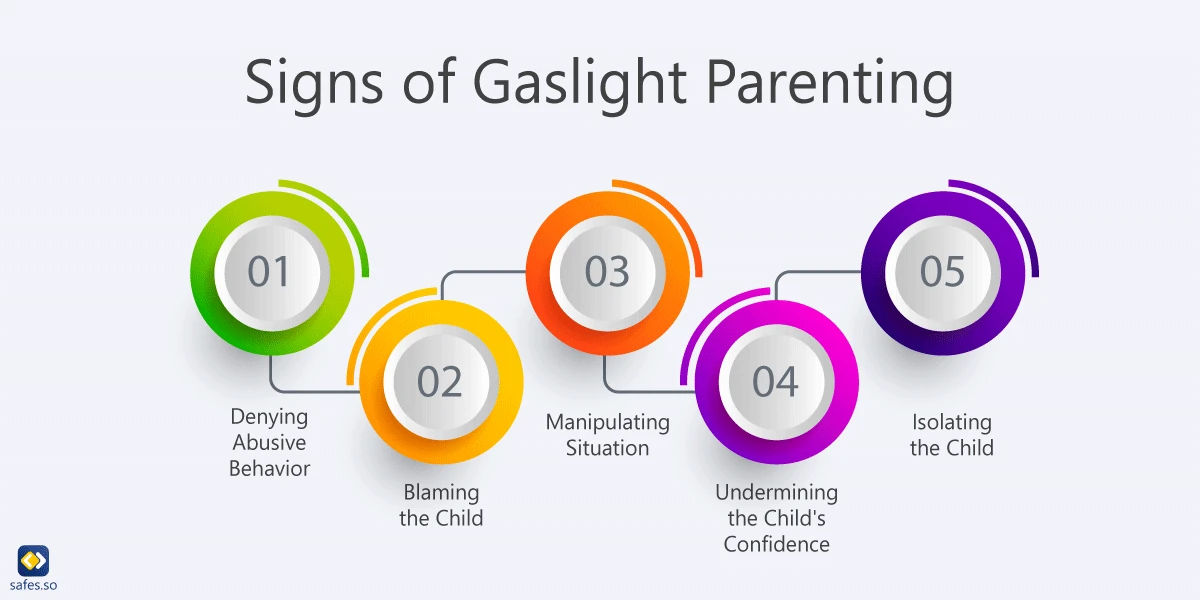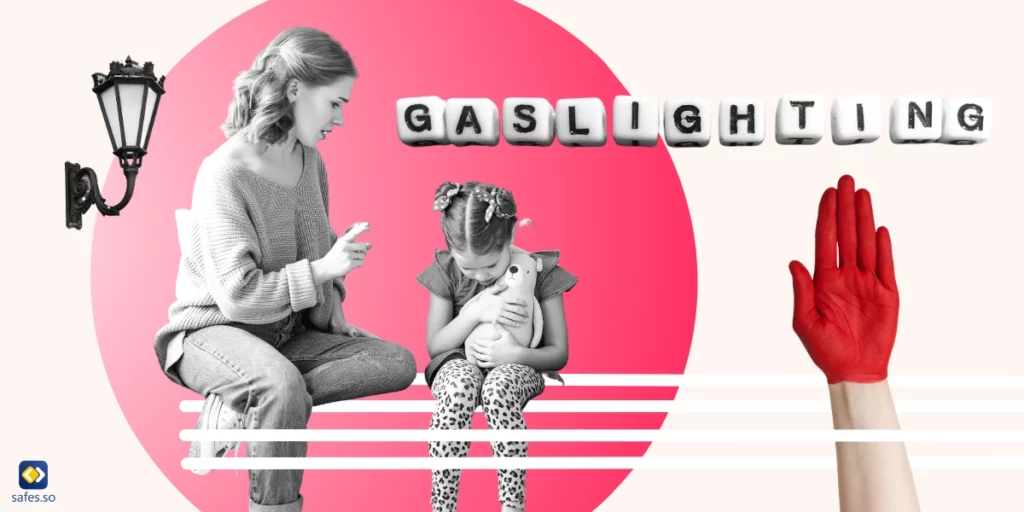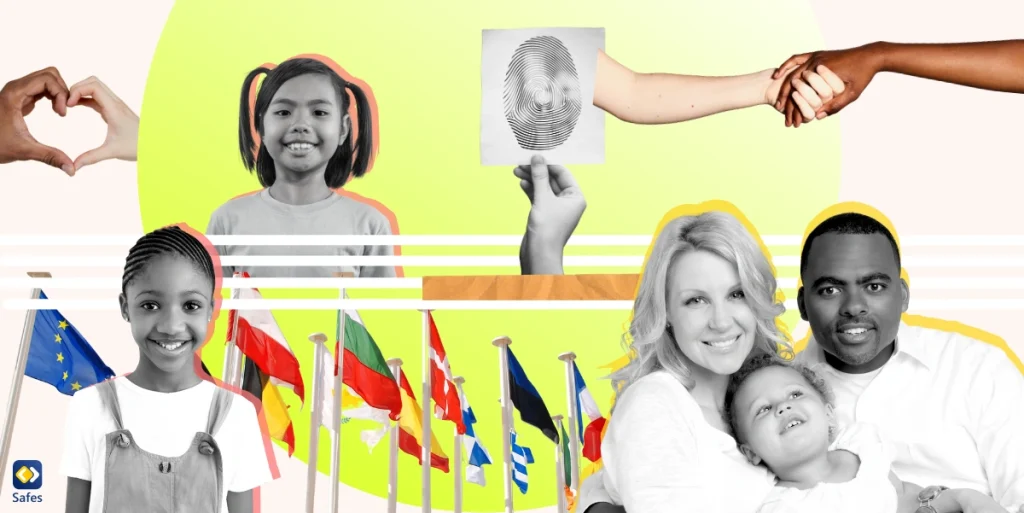Gaslighting is a form of emotional abuse that can have lasting effects on a person’s mental health and well-being. When gaslighting occurs in a parent-child relationship, the consequences can be particularly devastating. Gaslighting parents use various tactics to manipulate their children’s thoughts, feelings, and perceptions, causing them to doubt their own reality. This can lead to long-term psychological damage, including anxiety, depression, and even post-traumatic stress disorder. Recognizing and combatting gaslighting in a parent-child relationship is crucial for protecting yourself and your family. In this blog post, we will discuss how to recognize gaslighting parents, the effects of gaslighting on parents and children, and strategies for combatting this emotional abuse.
Download and Start Your Free Trial of the Safes Parental Control App
Signs of Gaslighting
Gaslighting is a form of emotional abuse in which the abuser manipulates the victim into doubting their own perception of reality. Common tactics used by gaslighters include denying events or experiences, minimizing the victim’s feelings, shifting blame onto the victim, and using positive reinforcement to control the victim’s behavior.
In parenting situations, examples of gaslighting parents may include denying abusive behavior, telling the child they are overreacting or being too sensitive, and blaming the child for the parent’s mistakes or shortcomings. Gaslighting is a form of toxic parenting that can have serious negative effects on a child’s mental health and self-esteem, making it crucial to recognize and combat this form of emotional abuse.

Common signs of gaslight parenting include:
- Denying abusive behavior: Gaslighting parents may deny that they are being abusive or dismiss their child’s concerns as “overreacting” or “being too sensitive.”
- Blaming the child: Gaslighting parents may blame their child for their own abusive behavior, saying things like “You made me do this.” or “If you weren’t so difficult, I wouldn’t have to treat you this way.”
- Manipulating situations: Gaslighting parents may manipulate situations to make their child doubt their own memories and perceptions. For example, they may deny that an event happened or insist that the child is remembering it incorrectly.
- Undermining the child’s confidence: Gaslighting parents may constantly criticize their child, make them feel inadequate or inferior, and make them doubt their abilities and judgment.
- Isolating the child: Gaslighting parents may isolate their child from other family members or friends, making it difficult for them to get support or validation from others.
Impact of Gaslighting on Children
Gaslighting by a mother or father can have severe emotional and psychological effects on children. It can lead to feelings of confusion, anxiety, and depression. Children may begin to doubt their own abilities and judgment, leading to low self-esteem and self-worth. As they grow older, they may struggle to form healthy relationships and have difficulty trusting others.
The long-term consequences of gaslighting by a parent can include chronic mental health issues, such as anxiety disorders and depression. It can also impact their ability to function in social and professional settings. It’s crucial for anyone who has experienced gaslight parenting to take steps to protect themselves and their children.
Protecting Yourself and Your Children
Gaslighting by parents is a form of emotional abuse that can have long-lasting effects on children. Recognizing gaslighting is key to combating it. Setting boundaries is crucial in stopping this behavior, as is building a support system of trusted friends and family. Seeking professional help is vital for anyone who has experienced gaslighting. A therapist can help victims learn coping mechanisms and work through the emotional and psychological effects of the abuse.

How Can Safes Improve Your Parenting?
Fortunately, there are tools available to help parents avoid becoming gaslighters. The Safes parental control app can help prevent gaslight parenting by providing a safe online environment for children. The app offers features such as web and app filtering, screen time management, and activity reports which can help prevent access to harmful content and limit the amount of time children spend online. By setting digital boundaries and blocking inappropriate content, parents can prevent themselves from resorting to gaslighting tactics to control their children’s online behavior.
Additionally, Safes can help parents avoid manipulating situations to make their children doubt their own memories and perceptions by providing live location tracking and geofencing features. This way, parents can monitor their children’s whereabouts without having to resort to gaslighting tactics. Safes offers a free trial of the premium version so you can experience its live location tracking and geofencing features firsthand.
Safes is available on all Android and iOS devices. To learn how to use it for your child’s protection, follow the links below:
- Windows parental controls
- Macbook parental controls
- Parental controls on Android
- iPhone parental controls
Gaslighting Parents: Conclusion
In conclusion, gaslighting parents can have severe and long-lasting effects on their children’s mental health and well-being. Recognizing the signs of gaslighting and combatting this emotional abuse is crucial for protecting oneself and one’s family. Gaslighting parents use various tactics to manipulate their children’s thoughts and perceptions, causing them to doubt their own reality. The effects of gaslighting on children can be devastating, leading to feelings of confusion, anxiety, and depression. Seeking professional help and using tools like Safes, a parental control app, can help parents foster healthy and trusting relationships with their children while keeping them safe online. Let’s work together to combat gaslighting parents and create a safer and healthier future for ourselves and our families.
Your Child’s Online Safety Starts Here
Every parent today needs a solution to manage screen time and keep their child safe online.
Without the right tools, digital risks and excessive screen time can impact children's well-being. Safes helps parents set healthy boundaries, monitor activity, and protect kids from online dangers—all with an easy-to-use app.
Take control of your child’s digital world. Learn more about Safes or download the app to start your free trial today!




